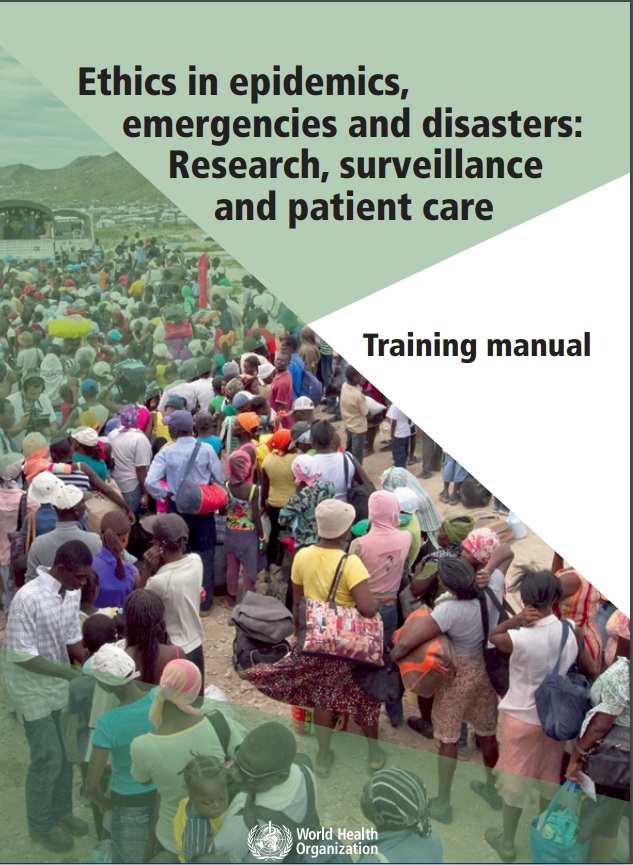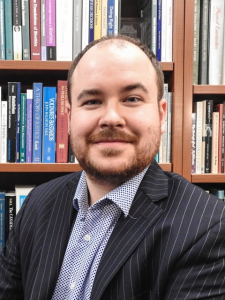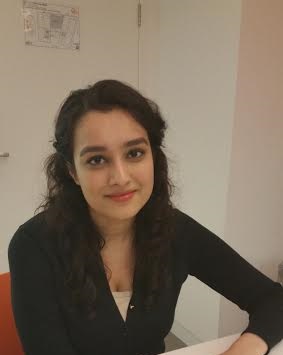 Faculty of Medicine students play roles in developing training manual and e-learning tool for ethics in public health emergencies
Faculty of Medicine students play roles in developing training manual and e-learning tool for ethics in public health emergencies
From a young age Renaud Boulanger knew he wanted to make a difference in the world though he wasn’t sure how. His Interest in global health ethics began in earnest while he was an undergraduate student at the University of Toronto. Working with a group that was consulting for the Bill and Melinda Gates Foundation at the time, his initial foray into global health, which involved working on tuberculosis got him thinking more broadly.
“I got really interested in the issue of research in complex crises,” says Renaud. “I was looking at the rise in clinical trials around the world and thinking about the fact that when a pharmaceutical company or a big research institute goes into a country and starts doing research they bring with them a lot of resources, they build laboratories and other infrastructure and there’s a lot of capacity building that happens. So I started thinking of some of the logistical and other questions around conducting clinical trials and around the vulnerability of the populations in these settings.”
Renaud was considering what he wanted to focus on for his Master’s degree when he began discussions with Dr. Matthew Hunt, Associate Professor in the School of Physical and Occupational Therapy and Associate Member of the Biomedical Ethics Unit at McGill’s Faculty of Medicine. “I started talking with Matthew and it turned out we were thinking about similar issues,” notes Renaud of his early discussions with Dr. Hunt. “But he was looking at research more broadly than I was. He received a grant and I started working with him, attending meetings with him and meeting with people, at the World Health Organization (WHO) for example, who had similar interests.”
During one of these meetings that Renaud participated in – an international meeting in Hamilton convened by Dr. Hunt – discussions with an attendee from the WHO turned to a

training manual they were working on for public health specialists and policy makers titled “Ethics in epidemics, emergencies and disasters: Research, surveillance and patient care” whose development had hit a roadblock. Seeking additional hands to help move the project along, Renaud volunteered to help, which resulted in what was supposed to be a short internship at the WHO in Geneva, but turned into a three year endeavour.
“It was really interesting working on this project with the WHO,” says Renaud. The training manual is divided into different modules with each module written by a different author. Each module contains theoretical material as well as exercises, group discussions and case studies that facilitators can work their students through. While at the point Renaud joined there was a general sense of what each module would focus on with a preliminary idea of the case studies, much of the material had not yet been fully written.
“My role was coordinating and making sure that we got the message out to the authors that they needed to write their parts and then after that it was waiting for the authors’ responses and submissions, and then editing, editing and re-editing!”
Renaud explains that one of the things that distinguishes the WHO training manual from some of the existing literature is its comprehensiveness as they were able to cover more of the lifecycle of research given the length of the document. “We have stuff on conflict of interest, for instance,” he notes, “but also on publication ethics which normally only comes up at the end of a project. So most articles that you would find out there that cover publication ethics for example would not talk about data collection or recruitment. So with this one piece that you can bring with you, it will guide you through the whole cycle of your research.”
Dr. Hunt describes the training manual as a unique resource that has already been used for training activities in many regions of the world.
Once the manual was finally completed and made available on the WHO website, Renaud had an opportunity to reflect on the experience. “For me this project was very motivating. I was working on my thesis but at the same time I had the opportunity to work on this related project that you know will make an impact on people,” he shares. “I made acquaintances with a lot of people who I had read before, but hadn’t been in touch with. In terms of networking the experience was spectacular. It was also a great experience just to learn how these things work at an international level.”

Prior to beginning her undergraduate degree at the University of Western Ontario, Anushree Davé did not have much exposure to the realm of biomedical ethics. “I took a variety of health-related courses during my undergrad and the interdisciplinary nature of bioethics is what really drew me to it” she explains. After completing her fourth-year thesis looking at the role of social media in influencing federal health policy decisions in Canada, Anushree worked for a start-up contract research organization called Inflamax Research in Toronto. “During my time at Inflamax I developed a strong interest in learning about the ethics that guide research involving human participants so I decided to apply to McGill for the Master’s in Bioethics program through Experimental Medicine.”
One of the people who interviewed Anushree for the program thought her interests matched well with Dr. Hunt’s research and made a connection between the two. She ended up working with Dr. Hunt as a research assistant for four months and found inspiration in this project to begin her thesis looking at ethical transparency in disaster research.
With the same Faculty of Medicine international travel funding that allowed Renaud to work with the WHO, in August of 2015 Anushree had the opportunity to travel to the WHO and work on the follow-up to the training manual, and develop an e-learning course to be used for training. “My first job was to thoroughly understand the complexities and nuances of the topics presented and identify the main themes of each module,” says Anushree. “With the guidance of researchers at the Centre for Tropical Medicine & Global Health at the University of Oxford, I started developing test material that ranged in difficulty-level to follow-up each e-learning module. We then developed and put together content in a way that allows people to reasonably complete the e-learning course and understand the material so that they gain the specialized knowledge they need to apply it in real-life situations.”
“The publication of the WHO Training Manual and the related online training course wouldn’t have been possible without the contributions of outstanding interns from McGill,” says Andreas Reis, Technical Officer, Global Health Ethics Unit, World Health Organization. “Renaud Boulanger was instrumental in the coordination and drafting of the document, and Anushree Davé made essential contributions to the development of the online training manual.”
“Being involved in this project has helped me with my thesis work and I’m very thankful to McGill Medicine, Matthew Hunt, and the teams at the WHO and University of Oxford for this opportunity,” reflects Anushree. “Contributing to this has helped me conceptualize and understand a complex field. This work will have a real impact on the lives of individuals and the knowledge I gained from this experience is going to be very valuable as I advance in my career.”
Having recently completed a fellowship at the MaRS Innovation Hub in Toronto, Anushree is currently writing up her Master’s thesis which she aims to submit this summer. Most recently, Anushree was invited to contribute to the development of another e-learning resource on managing ethical issues in infectious disease outbreaks.
Since graduating in 2016, Renaud has joined the Centre for Applied Ethics at the McGill University Health Centre as a research ethicist and is working with Save the Children UK to establish the organisation’s first independent research ethics committee.
For his part, Dr. Hunt stresses the value these opportunities afford his students. “These internships were fantastic opportunities for Anushree and Renaud to develop skills, knowledge and contacts that have already proven valuable for their own research, and for their career development,” he says. “I’m happy to have been able to support them in this process.”
May 25, 2017
